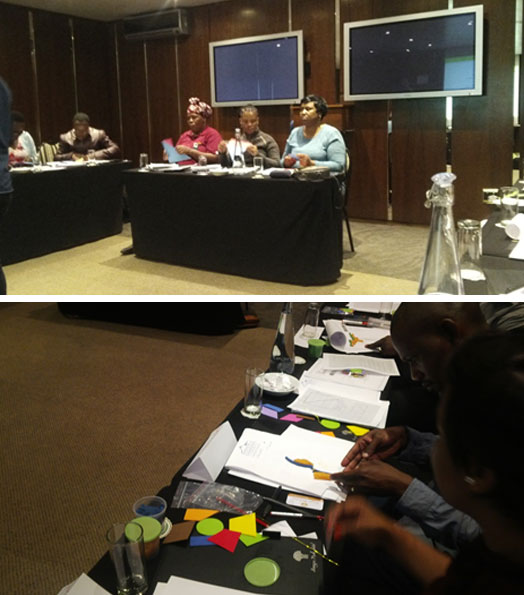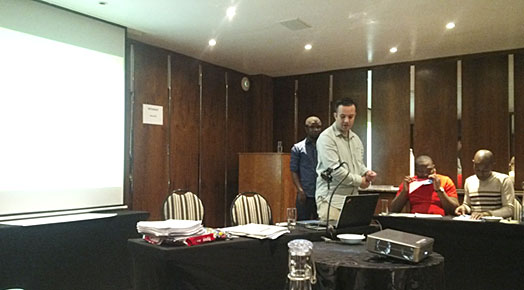

Secondary school educators from the Northern Cape and Limpopo attended a four-day workshop in Pretoria to increase their awareness of the importance of subjects related to science and engineering. SAASTA’s Science Education Unit, as part of the Komatsu project, invited 27 educators, while four facilitators conducted to the workshop. Komatsu is a mining and construction equipment manufacturer that funds the project in Mpumalanga, the Northern Cape and Limpopo Province.
The workshops re-visit topics in the grades 10 to 12 Curriculum and Assessment Policy Statement (CAPS) curriculum and reinforce educators’ knowledge with information not covered in the curriculum. This would in turn be beneficial for learners as the educators will be able to present concepts in creative, practical ways.
The workshop attendees were divided into two groups. Educators in the Mathematics group had to do calculations, take part in practical activities and work in teams to perform experiments and develop models under the guidance of instructors. The workshop covered topics such as probability, trigonometry, and financial mathematics.
The second group, the physical science and chemistry educators, were exposed to new concepts and the use of applicative questions. The group enjoyed the interaction with facilitators, asking technical questions which helped in the analysis of concepts. Physics topics that were covered included projectile motions and electricity, while the chemistry topics covered among others molecular interactions.
The aim of such workshops is usually to encourage young people to consider careers in science and engineering related disciplines. The Komatsu project, however, recognises the need to support educators to improve their preparation methods and presentations in the classroom. This will ultimately improve learners’ performance in the learning areas of Mathematics, Physics, Chemistry and Life Science.
